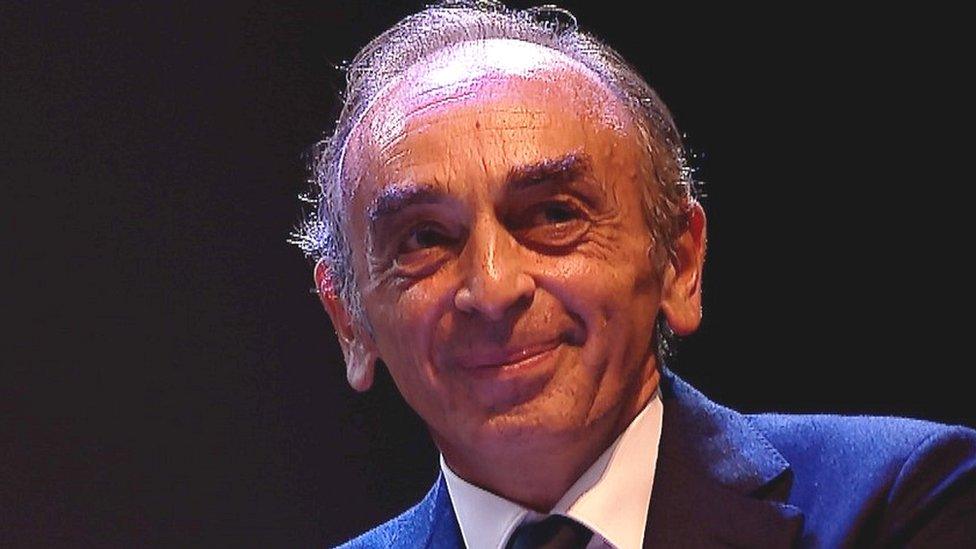French elections: Putin's war gives Macron boost in presidential race
- Published
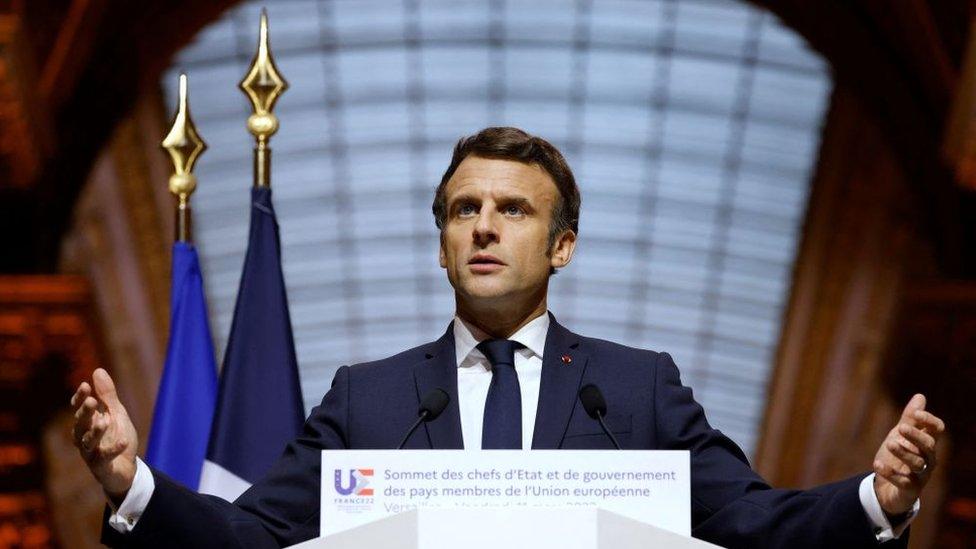
President Macron has played a prominent role in Europe's response to Russia's invasion of Ukraine
Russia's war in Ukraine has shaken up next month's French presidential elections, and it is as plain as day that the main beneficiary is the man already sitting in the Elysée.
Thanks to a mediocre opposition, goodish economic news and the decline of Covid, Emmanuel Macron was already the strong favourite, even before Russia invaded.
But what's happened in the last month makes his re-election seem almost inevitable.
Not only has his poll rating strongly improved in the multi-candidate first round on 10 April, where nearly a third of voters now say they'll plump for the incumbent.
But also in any combination for the 24 April run-off, it's Mr Macron who wins hands down - whether it is against Marine Le Pen or Eric Zemmour of the far right, Valérie Pécresse of the conservative Republicans or Jean-Luc Mélenchon of the far left.
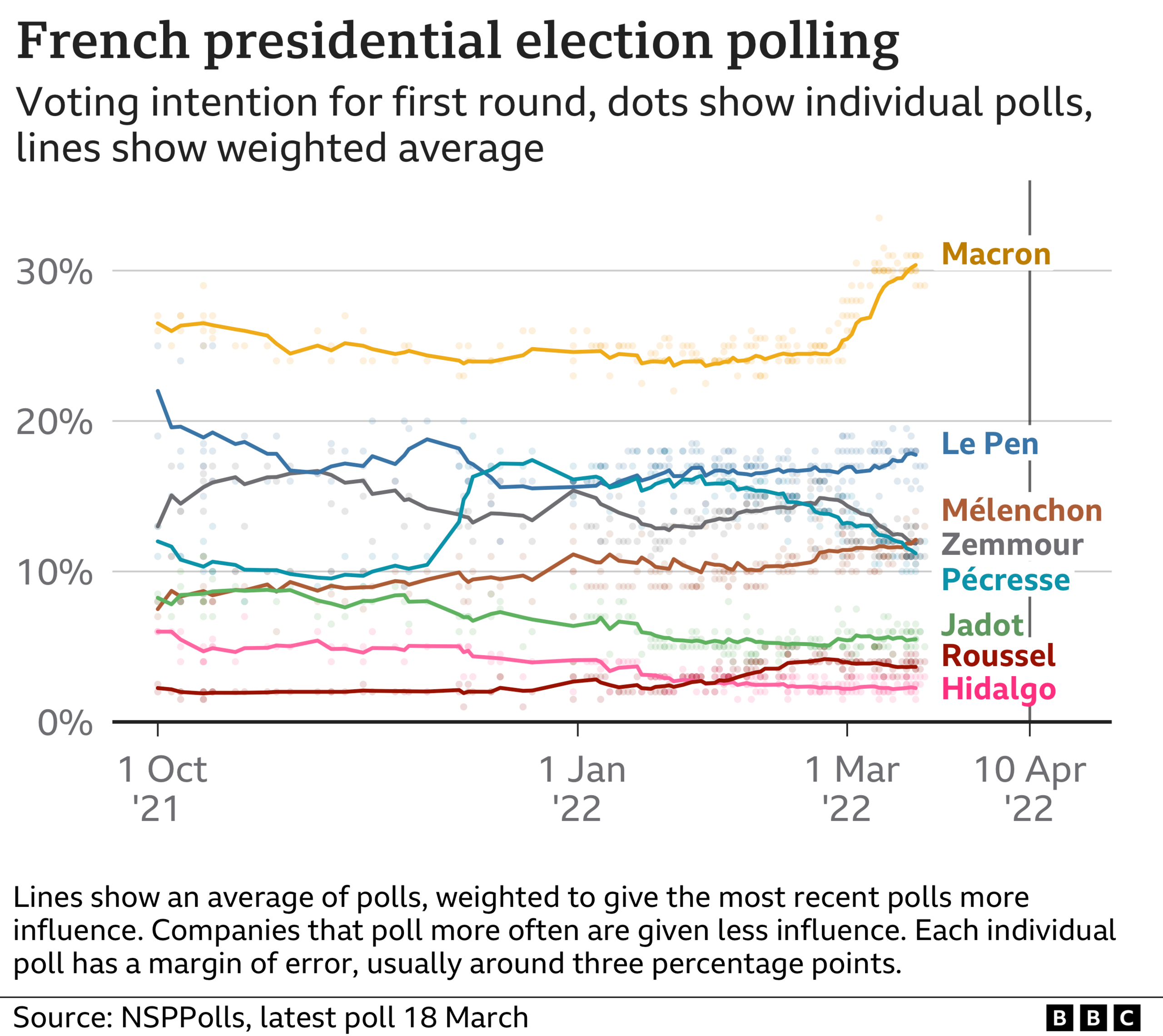

"Unless there is some freakish accident, there is almost no chance that Emmanuel Macron will not get re-elected next month," says veteran commentator Pierre Haski.
"He has two elements working in his favour. One is the disarray of the opposition. The other is the international situation, which is playing almost incredibly into his hands. It's turning into the most unexciting presidential election in living memory."
As the fighting escalated in Ukraine, French news and social media switched from campaign mode to war coverage.
Issues of vital importance a month ago, which helped define the competing candidates, suddenly seemed less important. Existential anxiety replaced worry over the price of electric cars.
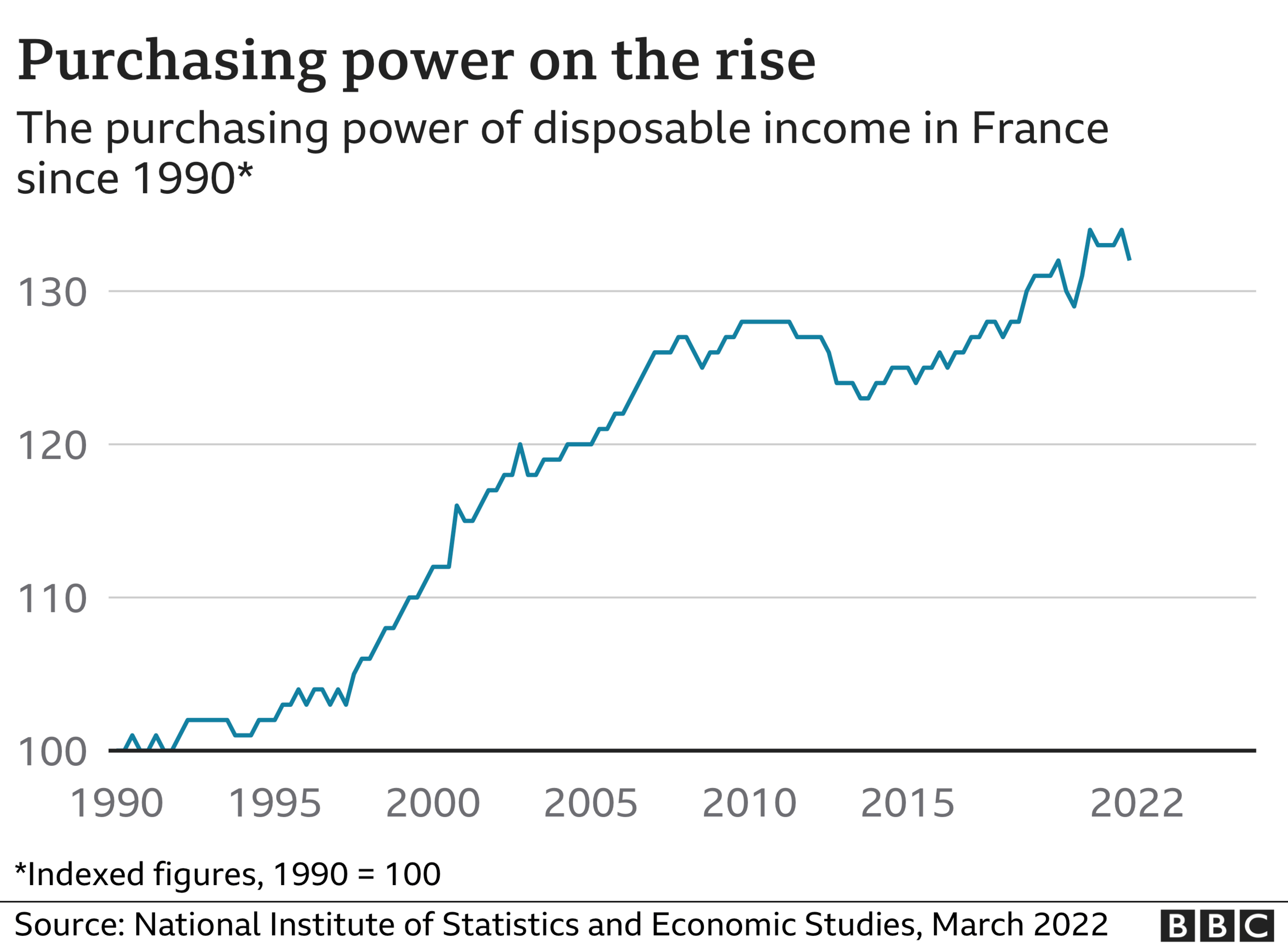

At the same time, Emmanuel Macron was seen striding the international stage.
His conversations with Vladimir Putin may have brought zilch in the way of results, but he was doing what the French like their leaders to do: going the "extra mile for peace".
And with his customary good fortune, the president also happened to be this semester's head of the European Council, representing the EU's 27 governments, with the result that he took the lead in organising sanctions on Moscow and arms to Kyiv.
Snaps taken by his official photographer have been much mocked for appearing to portray Mr Macron as a wannabe Volodymyr Zelensky - or maybe a Cuba-crisis Kennedy.
Allow Instagram content?
This article contains content provided by Instagram. We ask for your permission before anything is loaded, as they may be using cookies and other technologies. You may want to read Meta’s Instagram cookie policy, external and privacy policy, external before accepting. To view this content choose ‘accept and continue’.

But any PR damage will have been more than made up for by the overriding impression that he is indeed the man at the helm.
"There is genuine fear out there. There is an external threat. And when that happens, it makes people turn to the leader. Deep down, they feel that now is not the time for division. It's the rally-round-the-flag effect," says pollster Emmanuel Rivière of Kantar Public.
"It's also very important for the French that their country still has an important role at a world level. So when they see Macron talking to Putin, even at a very long table, it reassures them. The French are very sensitive to the question of whether they still count in the world - and Macron makes them feel they do."
TWELVE CANDIDATES: Who's in the race to challenge Macron?
With re-election apparently so sure, French commentators are nonetheless pointing up a couple of warning lights for the president.
The first is the classic problem of the strong favourite - that voters feel that he is a shoo-in and fail to turn out on the day.
The worry is not so much that he would lose, but that victory would be by a smaller margin than expected, giving heart to the opposition and lessening the chances of a dynamic second term.
The second, related problem has to do with the campaign.
In this time of crisis, practically the only argument that other candidates can wield against Emmanuel Macron is that he is too preoccupied with higher matters to descend into the arena and get dirty. You hear this a lot from the Republicans' Valérie Pécresse, who warns of a reconduction tacite, or autorenewal.
It is the legal term used for insurance or mobile phone contracts that roll over automatically unless there is explicit refusal, often to the irritation of the purchaser.
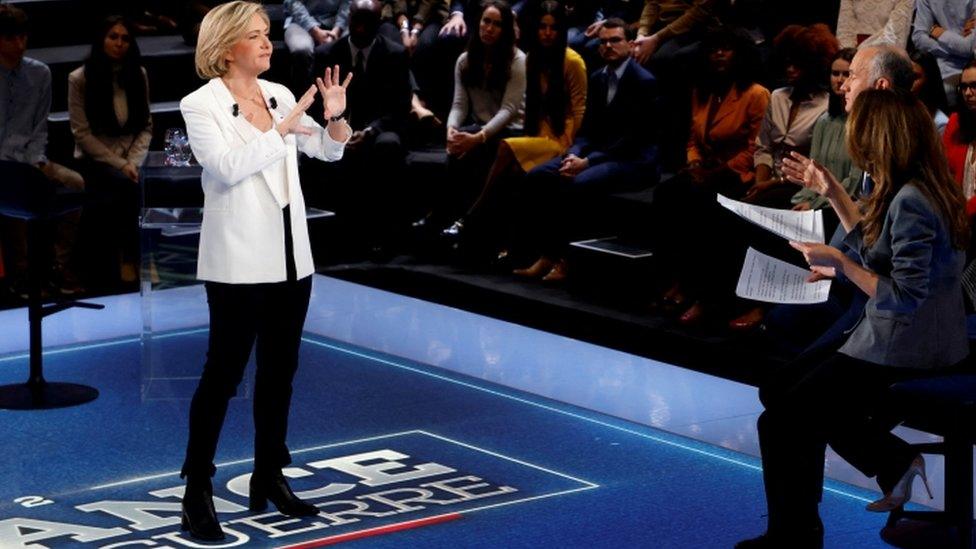
Valérie Pécresse has been scathing about Mr Macron's record in power, calling him an illusionist
In the political sphere, it would mean Mr Macron being re-elected by default, not with widespread support for his programme but simply because of the special circumstance of the war.
"[Macron] is shirking a proper debate on his record in office and on the reforms which this country so badly needs," Ms Pécresse told me at a rally this week in the town of Meaux, east of Paris: "It is very disrespectful for the French."
The more or less explicit threat is that if there isn't a real debate about domestic issues in the campaign, then Emmanuel Macron will only have himself to blame if there is trouble later when he tries to introduce change - for example, raising the official retirement age to 65.
"You know what the French are like: if they are not able to make their voices heard in the election, then they will do it in the street," says Ms Pécresse's ally, the mayor of Meaux, former minister Jean-François Copé.
"And who knows where that would end?"
- Published9 April 2022
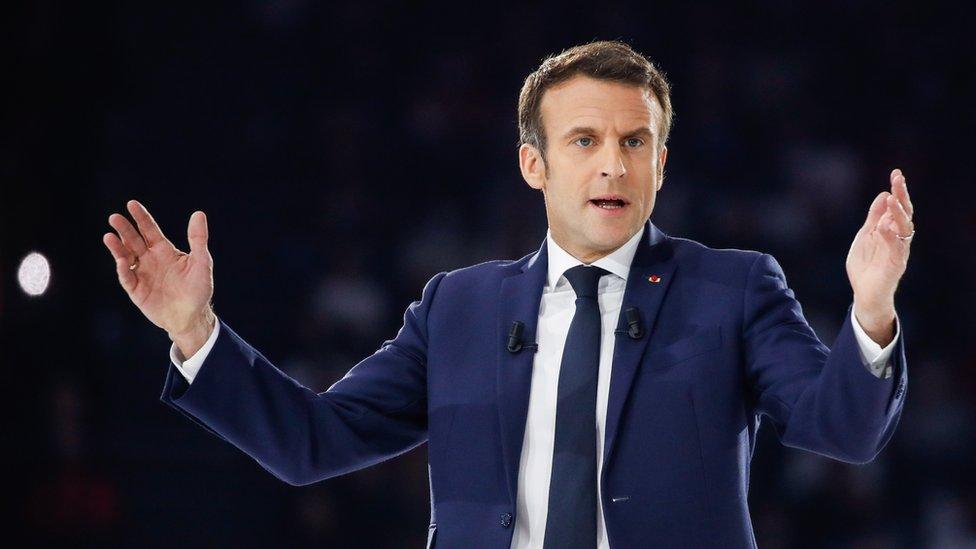
- Published10 December 2021
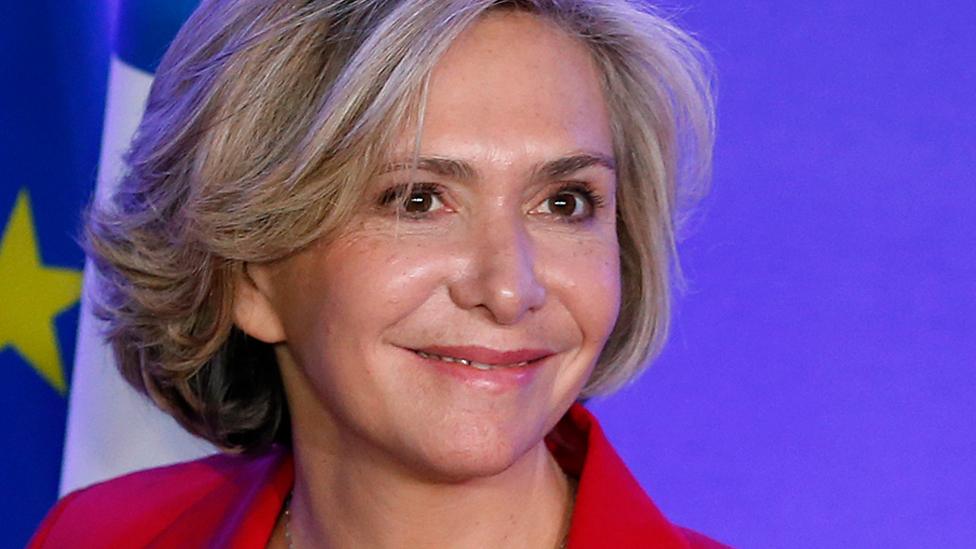
- Published19 October 2021
